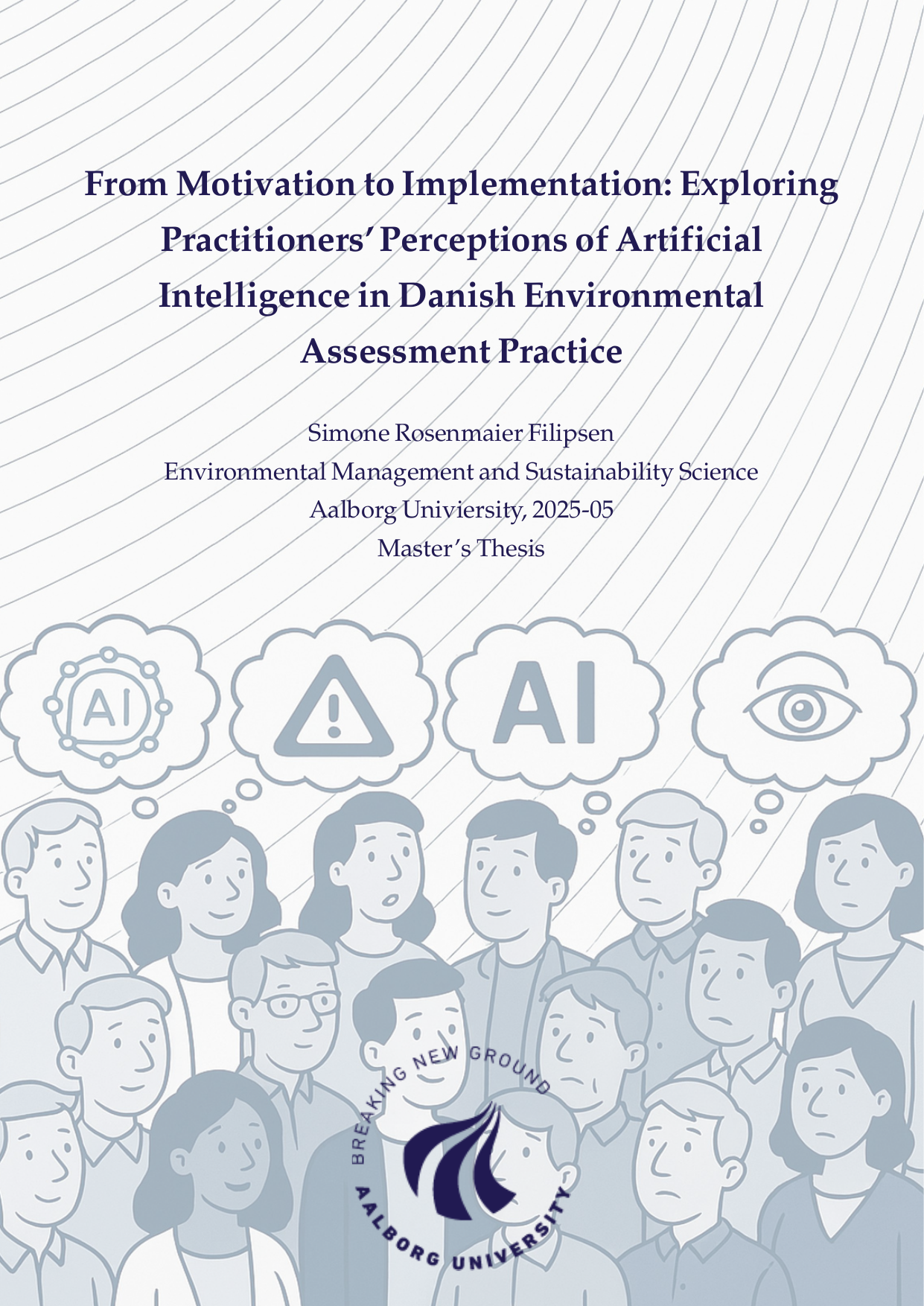
From Motivation to Implementation: Exploring Practitioners' Perceptions of Artificial Intelligence in Danish Environmental Assessment Practice
Author
Term
4. Term
Publication year
2025
Submitted on
2025-05-28
Pages
24
Abstract
Environmental Assessment (EA) practice is increasingly shaped by global pressures, including sustainability transitions and digital innovation. Among emerging technologies, artificial intelligence (AI) has gained attention due to its potential to enhance efficiency and analytical capabilities in EA processes. Although current research outlines promising opportunities for AI in EA practice, its application in practice remains limited. Therefore, this study explores Danish practitioners' perceptions of opportunities and barriers shaping their motivation to implement AI into EA practice. Drawing on the theoretical framework, Spaces for practice, this research is based on semi-structured interviews with 19 Danish practitioners, including consultants, authorities and developers. The results reveal a strong motivation to explore AI, driven by the potential to streamline repetitive tasks, improve report consistency, and facilitate knowledge sharing. However, this motivation is restricted by significant barriers, including limited knowledge, lack of guidelines and methodologies, concerns about data reliability, and organisational limitations. Furthermore, practitioners often defer responsibility for initiating change, indicating a need for collective action and clearer frameworks. While the motivation for AI in EA practice is strong, the findings underscore that conditions such as institutional support, shared standards, and transparent collaboration are crucial to transforming this motivation into practice. The research concludes that AI's future role in EA practice relies not only on its technical capabilities but also on the social and structural context that shapes practitioners' ability to implement AI.
Keywords
Documents
